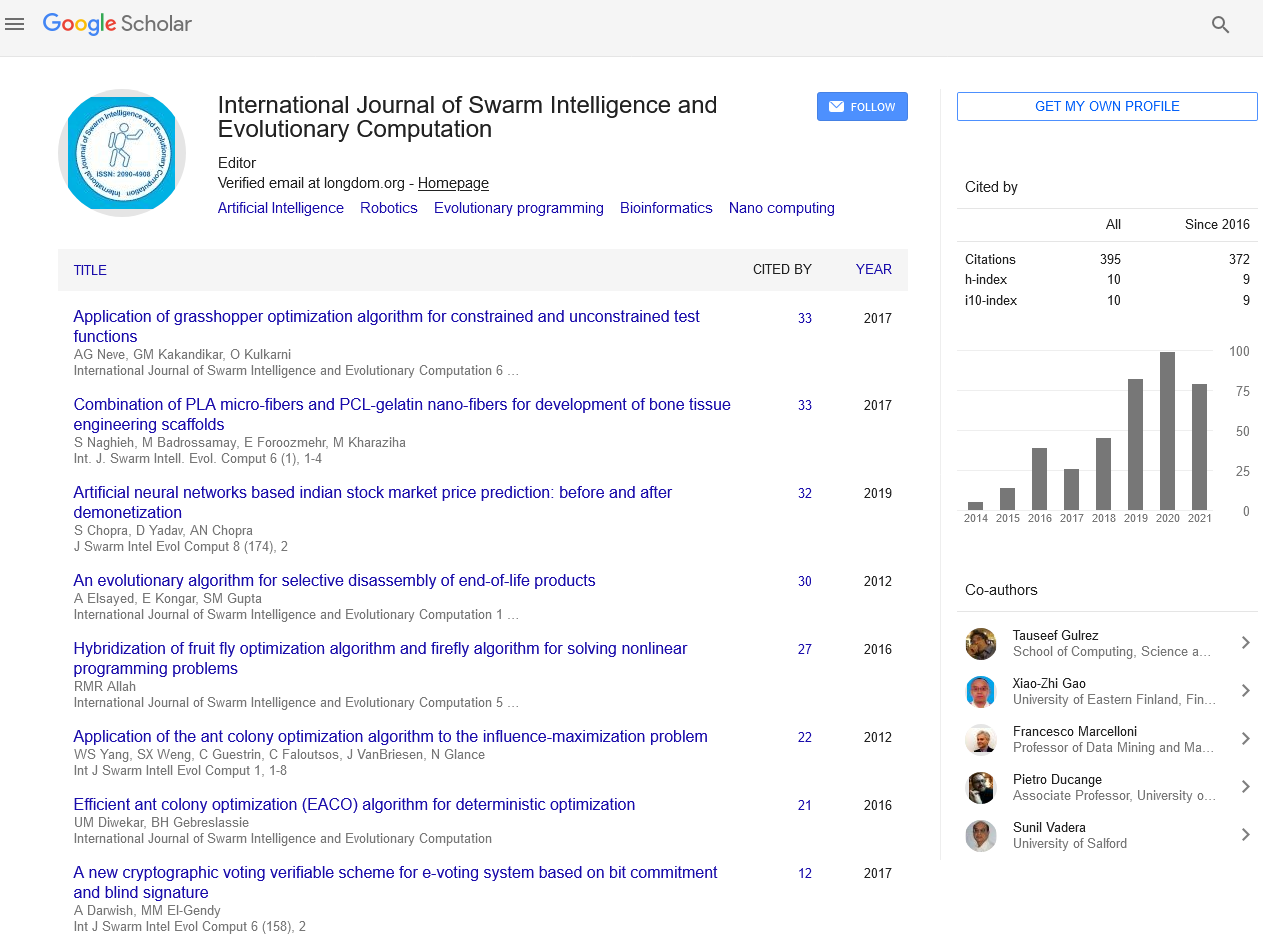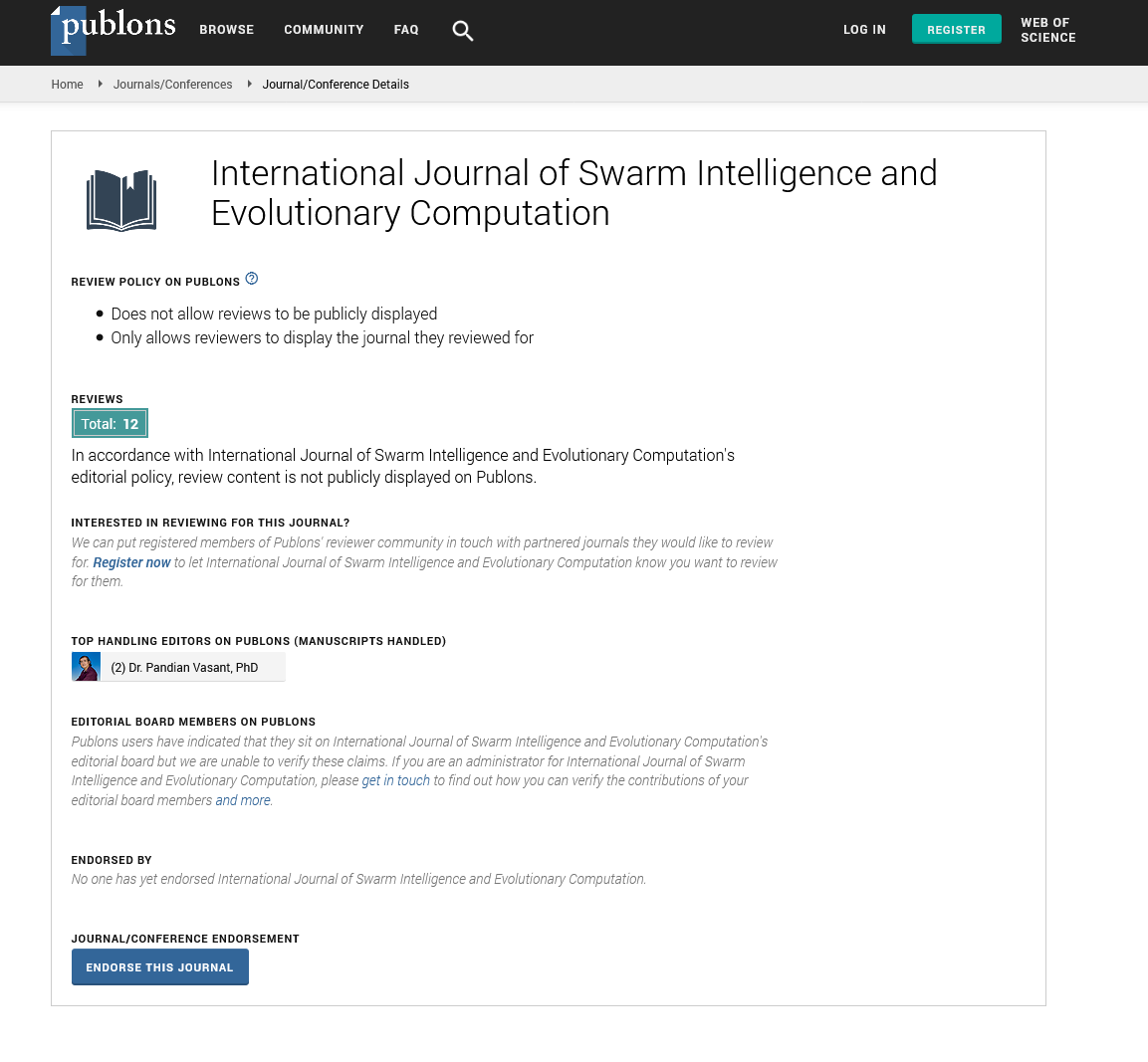Indexed In
- Genamics JournalSeek
- RefSeek
- Hamdard University
- EBSCO A-Z
- OCLC- WorldCat
- Publons
- Euro Pub
- Google Scholar
Useful Links
Share This Page
Journal Flyer

Open Access Journals
- Agri and Aquaculture
- Biochemistry
- Bioinformatics & Systems Biology
- Business & Management
- Chemistry
- Clinical Sciences
- Engineering
- Food & Nutrition
- General Science
- Genetics & Molecular Biology
- Immunology & Microbiology
- Medical Sciences
- Neuroscience & Psychology
- Nursing & Health Care
- Pharmaceutical Sciences
Commentary - (2021) Volume 0, Issue 0
History of Artificial Intelligence
Robert Martinoli*Received: 05-Oct-2021 Published: 26-Oct-2021, DOI: 10.35248/2090-4908.21.s6.003
Description
For the researchers Artificial Intelligence (AI) is not a new word or not a new technology. This technology is much older than we would envision. In the first half of the twentieth century, science fiction acquainted the world with the idea of artificially intelligent robots. It started with the “heartless” Tin man from the Wizard of Oz and proceeded with the humanoid robot that impersonated Maria in Metropolis. Until 1950 people were unaware of the term AI. In the year 1955 John McCarthy has introduced the term artificial intelligence and also known to be the founder of AI. There are some researchers who are known to be as fathers of AI: McCarthy, Alan Turing, Allen Newell, Herbert A. Simon, and Marvin Minsky. In 1876 the first patent for the invention of the telephone happened and AI was introduced at a much later stage. From most of the studies it is found that the field of AI research was founded at a workshop held on the campus of Dartmouth College during the summer of 1956. During this period it was predicted that a machine as intelligent as a human being would exist in no more than a generation and they were given millions of dollars to make this vision come true. We had a generation of scientists, mathematicians, and philosophers by the end of 1950s with the concept of artificial intelligence. Artificial intelligence consists of set of sciences, theories and techniques (including mathematical logic, statistics, probabilities, computational neurobiology, and computer science) that aims to imitate the cognitive abilities of a human being and known to be a young discipline since sixty years. At the beginning of the second world war its developments are intimately linked to those of computing and have led computers to perform increasingly complex tasks, which could previously only be delegated to a human. Since around 2010, however, the discipline has experienced a new boom essentially because of the extensive improvement in the computing power of computers and access to massive quantities of data. In the first decades of 21st century investment and interest has been raised in AI. Due to the presence of a powerful computer from that time machine learning was successfully applied to many problems in academia and industry. Gradually with the time, the wave of computers started, they became faster, more affordable and able to store more information. The best part was that they could think abstractly, able to self-recognize and achieved natural language processing. The year of 1974 is known to be as “computers flourished”, and 1980 as the year of AI. The research in AI fired back up with an expansion of funds and algorithmic tools and also introduction of deep learning techniques in the 1980. After all the failed attempts AI has successfully achieved its landmark goals in 2000s. During that period AI thrived despite a lack of government funds and public attention. As we know that technology is being evolving day by day and AI is reaching new heights with 12.9% annually worldwide since last five years. From most of the studies it is stated that China will become the biggest global source of artificial intelligence and will take over the United States.
Citation: Martinoli R (2021) History of Artificial Intelligence. Int J Swarm Evol Comput. S6:003.
Copyright: © 2021 Martinoli R. This is an open-access article distributed under the terms of the Creative Commons Attribution License, which permits unrestricted use, distribution, and reproduction in any medium, provided the original author and source are credited.


